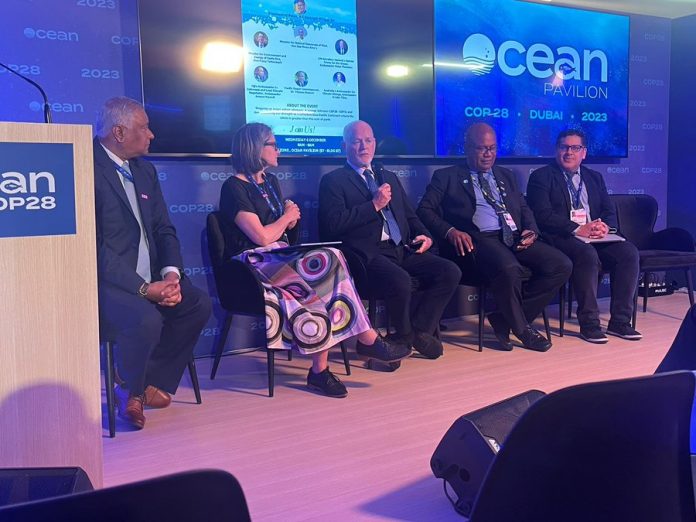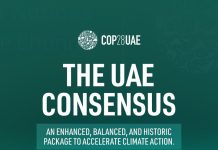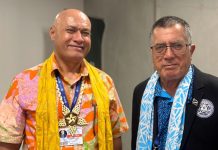By Pita Ligaiula at COP28 in Dubai
UN Special Envoy for the Ocean Ambassador Peter Thomson, a Fijian diplomat, delivered a blunt message on the challenges faced in the battle for ocean preservation.
“Are we winning the war? No. The oil and gas industry is definitely winning the war, and so we just have to keep fighting.
Look at the process,” Ambassador Thomson said at a side event on oceans, organised by the Office of Oceans Commissioner (OPOC) at the COP28 in Dubai.
Addressing the upcoming COP31, he highlighted the challenges of securing nominations, especially for Australia, part of a grouping with Canada, Iceland, New Zealand.
The diplomat mentioned the difficulty in winning nominations and the potential obstacle of Turkey in the bid.
“I don’t want to boast, but Fiji and myself have never lost an election at the UN in the last 10 years. We won everything against heavy competition from big countries. Why? Because we have the backing of PSIDS (Pacific Small Island Developing States).
“Once you have that, you go to AOSIS (Alliance of Small Island States), and PSIDS have their fair share of AOSIS. Now you’ve got 34 countries in the bag. You go to G77; there are 134 countries in the UN. We are small Island Developing states, and we demand our share. You back us, and we back you. That’s how you win elections in the UN,” Ambassador Thomson explained.
While acknowledging the tough fight, Ambassador Thomson pledged support for Australia in its bid for COP31.
“We are not winning this fight, but the good news is that there is so much money around now. We should be demanding this money. There are ways of funding our Marine Protected Areas (MPAs) and transitioning to renewable energy,” he said.
Ambassador Thomson proposed a visionary move for Pacific nations, suggesting they lead the world in adopting electric outboard engines.
“Those days of sucking benzines into our outboard engines must be gone,” he said.
Closing with a Fijian saying, “Tabu soro,” which means never surrender, Ambassador Thomson emphasised the need to keep fighting.
“We have to drive back the oil and gas to where it belongs, which is under the ground, and we have to derive our energy from the Sun, the waves, and the wind,” he concluded.
SOURCE: PACNEWS


















